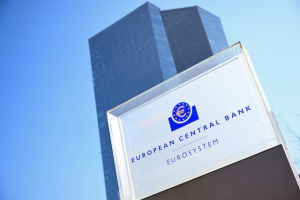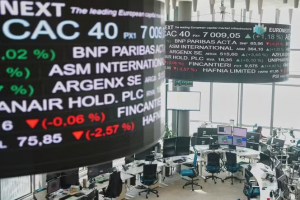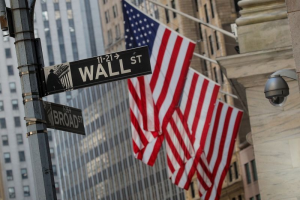Standard Chartered (OTC:SCBFF) sees a clear pathway for Bitcoin to reach $500,000, driven by growing investor access and declining volatility.
In a report issued Wednesday, the bank argued that Bitcoin is becoming a stable component in global investment portfolios, serving as a hedge against risks in traditional finance.
"Investor access improved sharply with the launch of US spot ETFs, and should rise further under Trump," Geoff Kendrick, Global Head of Digital Assets Research at Standard Chartered, said in the report.
The approval of spot Bitcoin ETFs in January 2024 unlocked pent-up demand, drawing net inflows of $39 billion so far. Standard Chartered expects further gains as the Trump administration continues to facilitate Bitcoin adoption.
The repeal of SAB 121, a regulatory hurdle that previously required companies holding digital assets for customers to recognize them as liabilities, is seen as a key step forward. Further, Trump’s January 23 executive order to evaluate a potential national digital assets stockpile could prompt central banks to consider Bitcoin investments.
Declining volatility is another major factor that could drive long-term appreciation in Bitcoin. Standard Chartered expects Bitcoin’s price fluctuations to ease as the ETF market matures and financial-market infrastructure improves, particularly through expanded options markets and increased counterparties.
“As volatility falls, Bitcoin’s share of an optimised two-asset portfolio with gold increases,” Kendrick continued. “Investor access and lower volatility should lead to price appreciation longer-term as portfolios continue to move towards their optimal/logical state.”
The strategist points out that gold’s volatility declined after exchange-traded products (ETPs) were introduced, and Bitcoin is likely to follow a similar pattern.
In this light, Standard Chartered maintained its price forecast of $200,000 by year-end 2025, followed by $300,000 in 2026, $400,000 in 2027, and $500,000 in 2028. "Access plus lower volatility could see Bitcoin reach the USD 500,000 level before Trump leaves office," he said.
Bitcoin’s growing role in investment portfolios is also evident in central bank considerations. The Czech National Bank (CNB) is reportedly exploring a Bitcoin allocation of up to 5% of its €140 billion in reserves.
In Switzerland, a referendum effort is underway to push the Swiss National Bank toward Bitcoin ownership. While the SNB would likely adopt a more conservative approach, its reserves are six times larger than those of the Czech central bank.
“The next question is whether any of the world’s largest reserve holders or sovereign wealth funds will announce that they plan to buy Bitcoin, or that they already have,” Kendrick added.
Standard Chartered believes it’s “reasonable” to assume that Bitcoin’s 3-month at-the-money (ATM) implied volatility could decline from 55% to 45% or lower within the next two to three years, citing a pre-ETF launch downtrend.
Volatility had previously dropped to 35% in August 2023 before markets began pricing in ETF approvals.













